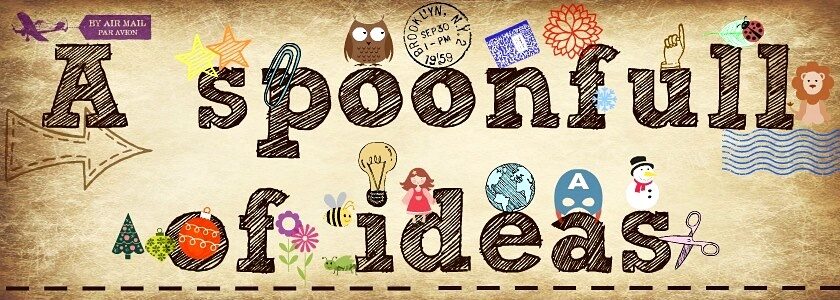Hi,
We are beginning our third year with a lovely guest post on our blog.
If you would like to contribute an article too, do send it to us at aspoonfulofideas@gmail.com
Few months back, Catherine connected with me after she read my blog. She has contributed a lovely article for our blog. This post is for school kids already introduced to science.
The post, images and opinions are completely credited to her. Do find more information about her at the end in the author bio.
Over to Catherine,
Poornima
—————————————————————————————————————————————————
Cooking is rarely associated with science, but that’s what it really is. Mixing compounds in precise quantities to make new ones, heating them to a specific temperature for a specific time and changing compounds from one state of matter to another – we do all of these in the kitchen on a regular basis.
Every dish that you cook could be a scientific experiment in its own right! The process of making candies, baking cakes and even making ice cream are all based on scientific principles. I bet your kids have no idea science can be so delicious. What better way to spend the afternoon than to try out some easy science experiments and then munch on the products when you’re done! Without further ado, here are three simple and delicious science experiments for kids.
- Rock candy
Making rock candy involves the scientific concepts of supersaturation and crystallization. Create a super saturated sugar solution by boiling one cup of water in a pan and slowly adding 2-3 cups of sugar to it a little at a time, stirring after each addition. Stop once no more sugar will dissolve in the water. Pour the sugar solution into a glass. (Only an adult should deal with the hot sugar solution.) Tie a piece of string to a pencil and place the pencil horizontally over the mouth of the cup so that the string is suspended in the solution. Remove the string after a few minutes and leave it to dry completely. Once the string is dry, place it back in the solution and leave it there for a week. Check on the string once a day and you will see beautiful sugar crystals forming on the string. There’s your rock candy! (You can add food colouring to get rock candy in various colours.) This science experiment does take time, but it’s worth the wait.
“Blue rock candy” by Dion Hinchcliffe is licensed under CC BY 2.0
- Ice cream in a bag
Adding salt to water lowers its freezing point. While regular water freezes at 32 degrees F, salt water requires an even lower temperature to freeze. This is the principle in play in this science experiment. Take two sandwich-sized ziplock bags and place them one inside the other. Mix one cup of half-and-half, two tablespoons sugar and ½ teaspoon vanilla extract inside the small bag. Take one gallon size bag and put 4 cups of crushed ice and 1/3 cup salt in it. Put the small bag inside the bigger bag and shake it well for five minutes. Then remove the small bag and voila – there’s your ice cream!
- Make your own yoghurt
Yoghurt is made by friendly bacteria that are good for us. In order to make fresh yoghurt, all you need is milk and a little yoghurt. Boil one quart of milk on a stove and leave it to cool. Boiling the milk kills all the bacteria in it. Once the milk cools to 90 – 120 degrees F, add one tablespoon of yoghurt to it. The bacteria present in the yoghurt act on the rest of the milk and convert the entire portion into yoghurt. It is important to get the temperature of the milk right because if the milk is too hot the bacteria from the yoghurt will die and if the milk is not warm enough, the bacteria will not grow properly.
“making yoghurt” by flowolf is licensed under CC BY 2.0
These fun and easy science experiments are a great way to show your kids that science has applications in all walks of life, and that science really is great fun.
Author Bio:
Catherine Ross is a full-time stay-at-home-mum who believes learning should be enjoyable for young minds. An erstwhile elementary school teacher, Catherine loves coming up with creative ways through which kids can grasp the seemingly difficult concepts of learning easily. She believes that a ‘fun factor’ can go a long way in enhancing kids’ understanding and blogs at http://kidslearninggames.weebly.com/




